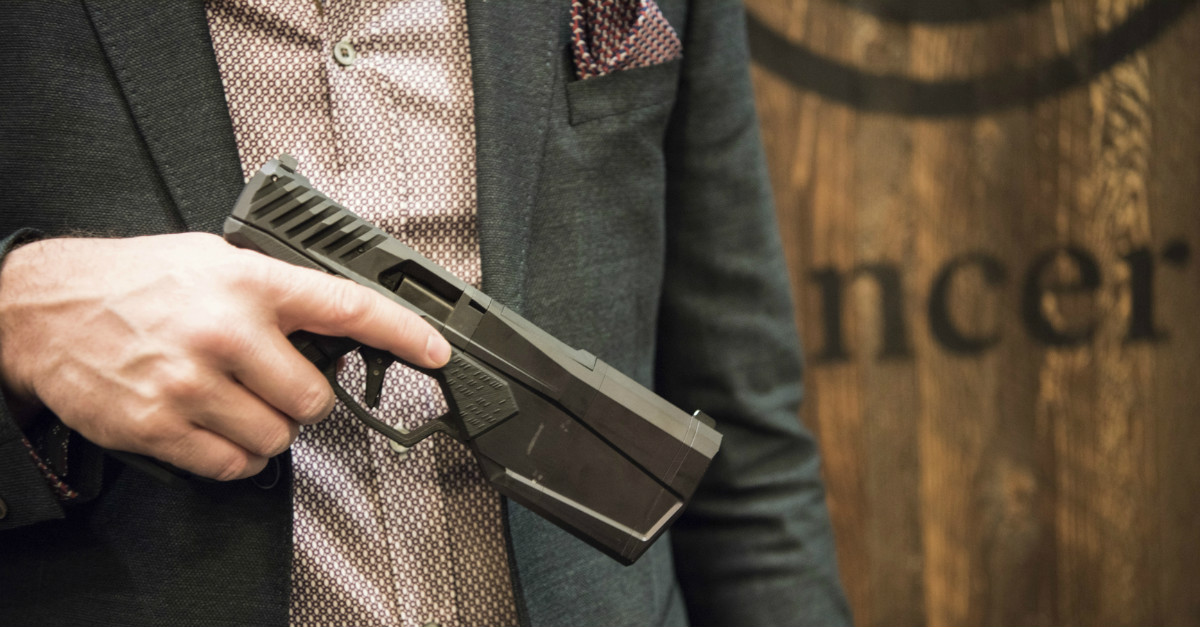The Washington Post just published an astonishingly good fact check on Senator Kirsten Gillibrand and Americans for a Responsible Solution’s nonsense claims about firearms suppressors. Both Senator Gillibrand and ARS trotted out the same old talking points from the radical left; suggesting that any increased access to firearms or firearm components will harm not only law enforcement but the entire nation. This time, they were attacking efforts to pass the Hearing Protection Act (HPA), a bill which would substantially decrease the burden to purchasing suppressors by regulating them like firearms.
Videos by Rare
RELATED: No, Congress did not just vote to allow the mentally ill to buy guns
Currently, the burdensome process costs each applicant $200 just to apply, plus fingerprinting, often times lawyers, and a waiting period averaging over nine months, and that’s not even including the cost of the suppressor, which can easily be another $1,000! HPA would greatly simplify the process and allow more people to enjoy using suppressors. Last month Ronald Turk, the Associate Deputy Director of the ATF advocated in favor of easing suppressor regulations. In a leaked White Paper, Turk called the regulation of suppressors “archaic” even suggesting suppressors “should not be viewed as a threat to public safety necessitating NFA classification, and should be considered for reclassification under the GCA”. If high ranking bureaucrats at the agency specifically tasked with regulating suppressors are interested in reevaluating the law, it’s clear Congress should do the same.
Unfortunately, reclaiming any right to self defense brings out those in favor of gun control Gillibrand tweeted “When someone gets shot by a gun with a silencer, it’s quiet. Witnesses might not hear. Police will be less likely to track down the shooter” and ARS mocked gun owners saying “You know what protects your hearing better than a silencer? Ear plugs.” Fortunately, the Washington Post got this one mostly right in their fact check saying:
It’s debatable that ear plugs protect ears better than a suppressor — and meanwhile, no self-respecting gun owner would use an AR-15 rifle without ear protection, even if he or she had a suppressor. Certainly the two in combination would provide better ear protection than one type alone, especially because the NRR of earplugs in regular use is probably overstated. So ARS’s tweet is rather misleading.
In the meantime, although the popular name of this accessory is a silencer, foes of the law such as Gillibrand should not use misleading terms such as “quiet” to describe the sound made by a high-powered weapon with a suppressor attached. We wavered between Two and Three Pinocchios, but finally tipped to Three. There is little that’s quiet about a firearm with a silencer, unless one also thinks a jackhammer is quiet.
The emphasis is mine, but in the words of Michael Scott: “Boom, roasted.”
Though the Washington Post is right, they missed one crucial use case for suppressors, home defense. In a home defense situation, you have little, if any, time to respond to the threat. ARS might not realize it, but you don’t have time to set down your firearm, squeeze in ear plugs, make sure they are seated correctly, and allow them to fill in your ear canal before responding to the threat. That’s not how any of this works.
Instead, you will need to respond to a deadly threat immediately and after you respond, pulling the trigger for the first time, you will become partially deafened. If it’s dark, you might be blinded by the flash. The concussion reverberating off the walls will be disorienting. If you missed, if there is more than one person, or if one round wasn’t enough to stop the threat, good luck with your follow-up shots.
Suppressors can level the playing field in a home invasion. They decrease not only the muzzle flash, but also the felt recoil, and noise signature of a firearm. They don’t silence gun shots, instead bringing them down to levels that don’t make your ear drums bleed. Attackers get to choose the time and place they will attack you, they don’t give you time to catch up and put on ear and eye protection. If you are forced to defend yourself and are able to survive the attack, you will likely have permanent hearing loss (and hopefully nothing worse).
The Hearing Protection Act isn’t just to make it more comfortable to shoot paper targets at the gun range; it’s about providing tools to those who lawfully defend themselves, especially in their own homes.



